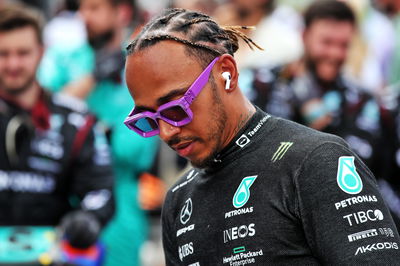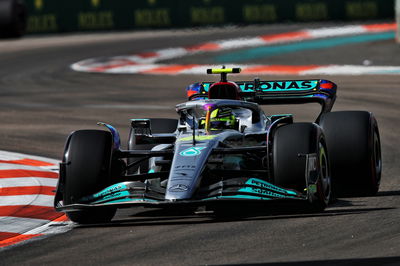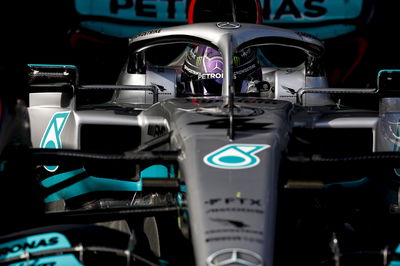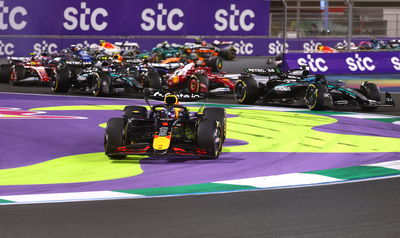Hamilton: Mercedes “haven’t improved” since start of F1 season

A promising start to F1’s inaugural Miami Grand Prix proved to be a false dawn as Mercedes fell back in qualifying and the race, with George Russell and Hamilton eventually finishing fifth and sixth.
Hamilton’s frustrating start to the year continued in Miami as he lost out to his new teammate Russell due to the timing of a Safety Car for the second time in five races and questioned Mercedes’ strategy.
- Hamilton slips out of Forbes’ Top 10 highest-paid athletes
- Is Hamilton set for the worst season of his F1 career?
- Hamilton puzzled by Mercedes strategy as frustrations continue
Asked if Mercedes had taken a step forward in Miami, Hamilton said: “Unfortunately not.
"We're the same speed as we were in the first race and we just haven't improved in these five races.
"But I'm hopeful at some stage we will. We just have to keep trying and keep working hard.”
The performance of Mercedes’ W13 challenger has been hampered by the high-frequency bouncing phenomenon known as porpoising, which is not showing up on the team’s simulations.

Mercedes are still trying to get to the bottom of the violent bouncing and, as a result, are yet unlock the true potential of their ‘no-sidepod’ concept, which the team insists is quicker than the original version of the W13 that hit the track at the start of pre-season testing.
Hamilton felt the porpoising was less of an issue in Miami but suspects that was largely down to the specific conditions and track surface at the new street circuit.
“It wasn’t as bad today,” he said. “From race to race, track to track, surface to surface, how high we put the car – we can put the car higher and reduce it – so today wasn’t actually really bad, just not fast.”
Mercedes won’t rule out return to old-spec F1 car
On Sunday night in Miami, Mercedes boss Toto Wolff did not discount the prospect of the team reverting to its older specification car that originally debuted in the Barcelona test.
The upcoming Spanish Grand Prix is set to be something of a make-or-break weekend for Mercedes as the team looks to take more crucial learnings from a direct, real-world comparison of the two concepts.
While Wolff stressed the team is “still committed to the current concept”, he did not dismiss a return to the car that is “much slower on paper” if progress is not made soon.
“We need to find out how we can make the current car work predictably for the drivers,” said Wolff.

“I wouldn’t discount anything. But we need to give all of our people who have produced great racecars in the past the benefit of the doubt, and we believe this is the route to go down.
“Barcelona [the next race] is definitely going to be a point in time when we are able to correlate with what we’ve seen in February [in the first test there with the old concept] and gather more data.
“I’m also annoyed by always saying the same thing a lot: gathering data and making experiments. But it’s physics and not mystics.”
For the time being, Mercedes remains “faithful to the current concept”, according to Wolff.
"We're not looking at the lady next door if we like it more or not, because it's still good,” he explained.
“We need to understand, before we make a decision on another concept - where did this one go wrong? And what is the goodness of the concept and what is the badness of the concept?
“And that is a question you can only respond to yourself, but I would be asking ourselves to get an answer after Barcelona, because that’s the real correlation we have.
“And by then, we’ve got to look at ourselves in the mirror and say: ‘did we get it wrong or not?’.”












